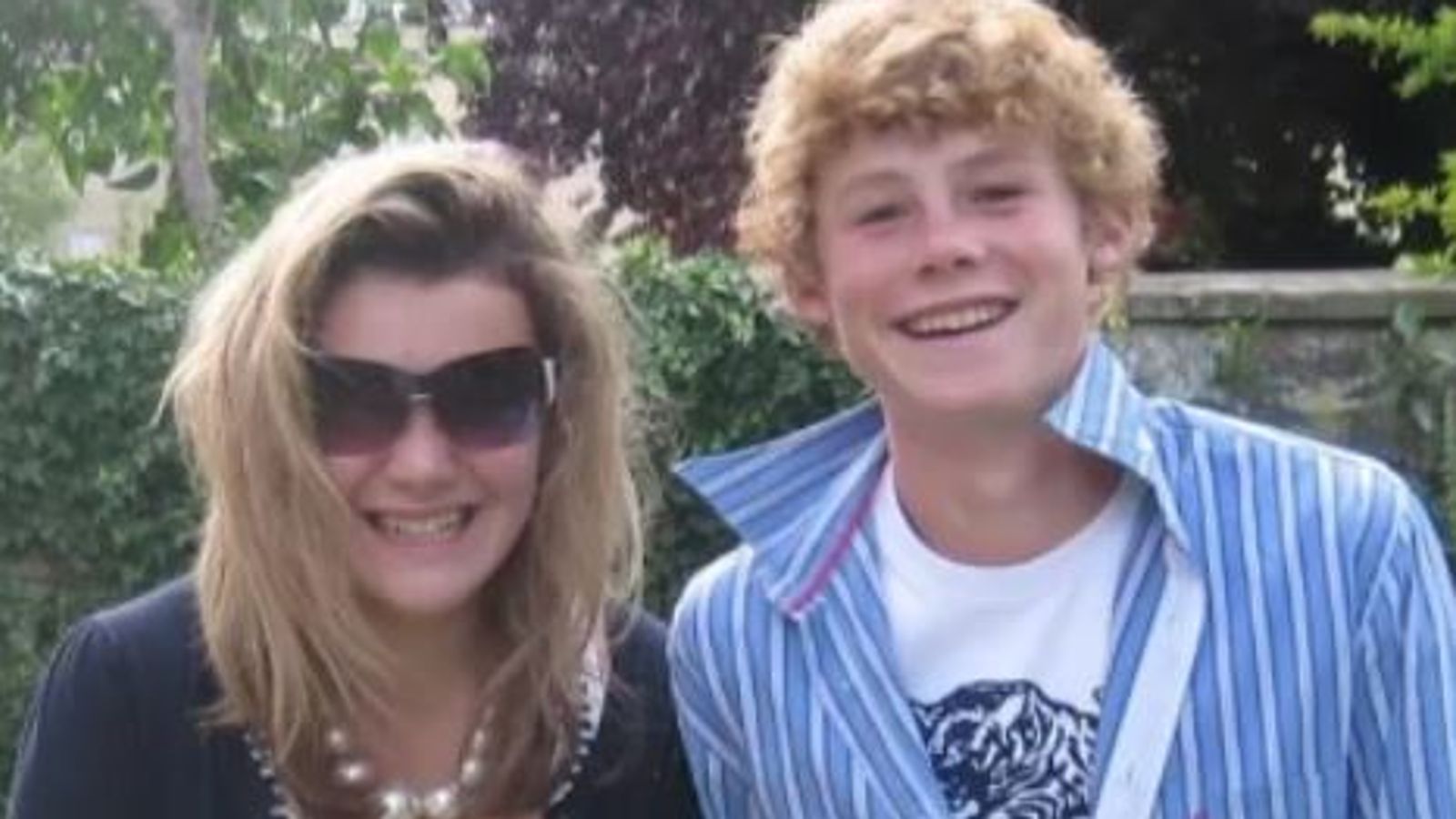The mother of a teenage boy who died from meningitis has urged students setting off for college and university to get vaccinated to “protect yourself against this horrible, horrible disease”.
Michelle Bresnahan told Sky News how her 16-year-old son Ryan woke up feeling poorly in March 2010 – and how by lunchtime she was phoning family and friends to tell them he had died.
She runs Bristol-based charity A Life For A Cure as a legacy to Ryan and to continue raising money and awareness of the different deadly strains of meningitis.
With students returning to lessons in Scotland – and with the rest of the UK to follow in the coming weeks – Ms Bresnahan urged unprotected teenagers to get vaccinated against the four potentially deadly types of meningitis.
She said: “Ryan had just turned 16. He was a fit, athletic, vibrant, wonderful young man and our trophy son, really – he was such a wonderful boy.
“He had just finished school for the Easter holidays and woke up saying he felt a bit sick, had a bit of a headache and really tired.
“He was supposed to be getting on revising for his GCSEs, so we parked that for the day and decided that we’d have a bit of a rest day with his sister Charlotte as well.
“I actually popped out to get some Lucozade, which he asked for, and some food for our day at home together, and within 45 minutes I returned home and there was an ambulance on our drive, telling me that Ryan had suspected meningitis and was incredibly poorly.
“My first reaction at that point was that only babies have meningitis. Ryan had just turned 16, he was six foot, he was a sports scholar at Clifton College in Bristol, he was funny. He had his whole life ahead of him.
“I didn’t understand what it meant that meningitis could affect someone so healthy that I’d only just been talking to less than an hour ago.”
She said Ryan was the fastest recorded fatality from being diagnosed with meningitis – and that doctors told her “it was like jumping off a cliff for him”.
“The paramedics were amazing, we had a helicopter to the house, they did everything they could for him – but by lunchtime we were phoning our friends and family to say that Ryan had died,” she added.
“They didn’t even know he was poorly. It happened so quickly that morning and making those phone calls I will never ever forget – and it’s obviously any parent’s worst nightmare to lose their child.”
Read more on Sky News:
Meningitis cases more than doubled in a year, warns charity
More teens unprotected from serious diseases as vaccine uptake falls
Ms Bresnahan said one in eight students heading to college or university have not been vaccinated.
“Anybody who is going to university or college or know somebody who is – please check that you’ve had the vaccination and, if not, book it today with your GP,” she said.
“There’s still time to protect yourself against this horrible, horrible disease.”
Be the first to get Breaking News
Install the Sky News app for free
Dr Shamez Ladhani, a consultant epidemiologist at the UK Health Security Agency, said: “What Michelle was describing was meningococcal meningitis and septicaemia that can occur so rapidly – even with the very best available treatment, often the outcomes are not very good even when they do survive.
“So the only way to prevent against these major strains is through vaccination.”
The NHS website says meningitis is an infection of the protective membranes that surround the brain and spinal cord.
The infection can be very serious if not treated quickly, while a number of vaccinations are available.
It is most common in babies, young children, teenagers and young adults.
Symptoms can occur in any order.
They include a high temperature (fever), being sick, a headache, a rash that does not fade when a glass is rolled over it (but a rash will not always develop), a stiff neck, a dislike of bright lights, drowsiness or unresponsiveness, and seizures.
The NHS tells people to call 999 or go to the nearest A&E immediately if someone is suspected to have meningitis.
People can also call NHS 111 for advice.
The NHS says the MenACWY vaccine is “highly effective” against serious infections caused by four different strains of meningococcal (known as A, C, W and Y).











